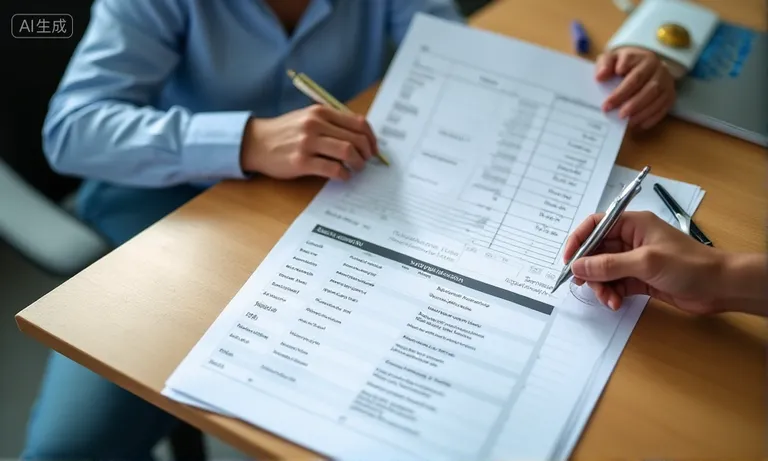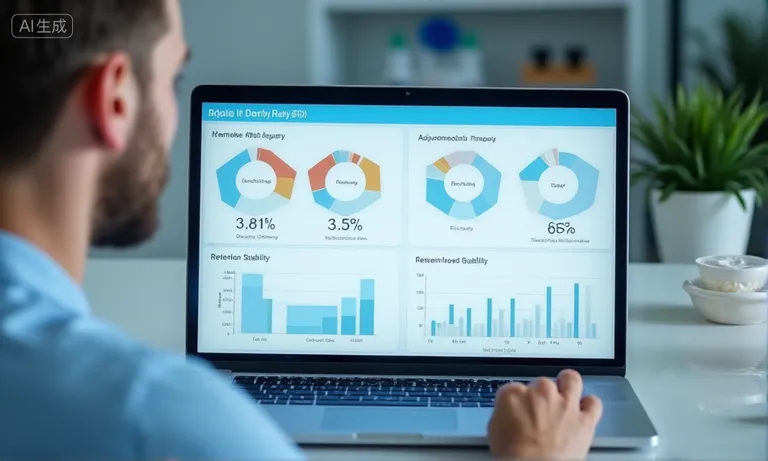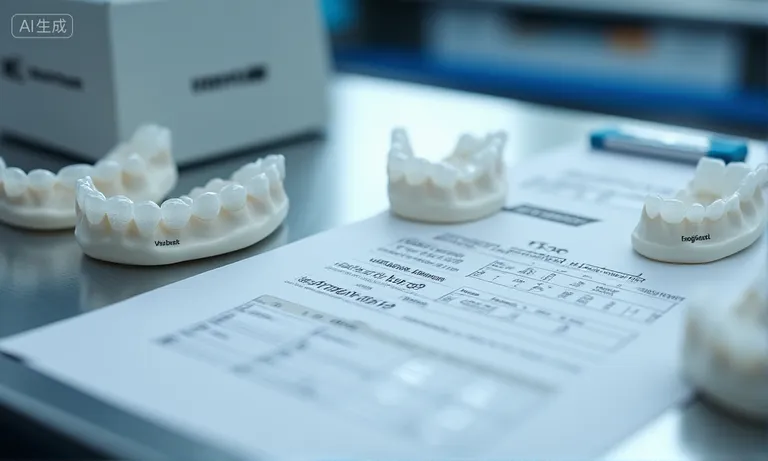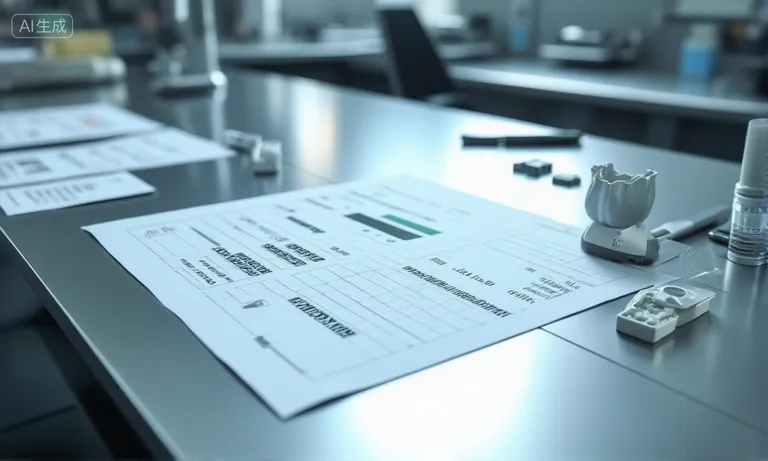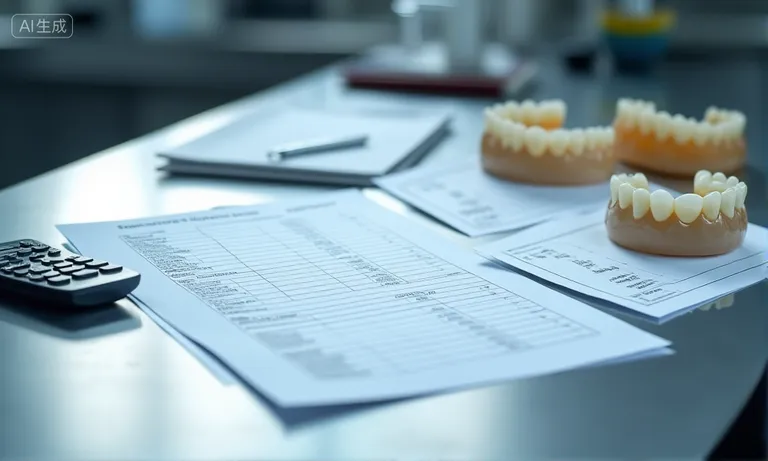When sourcing dental labs to handle complex implant cases, it’s crucial to assess their experience, technical capabilities, quality control processes, and communication efficiency. Overseas labs can offer competitive pricing and advanced technologies, but making the right choice requires thorough evaluation.
Here are the key factors to consider:
Experience & Expertise: Ensure the lab has experience with various implant types and complex cases, such as angled screw channels or soft tissue management. Verify their technical certifications and client retention history.
Certifications & Quality: Check for certifications like ISO 13485 and confirm that the lab uses FDA-approved materials. Understanding their quality control practices ensures high standards.
Cost & Value: Transparent pricing and clear cost breakdowns are essential to assess the lab’s value proposition. Evaluate how their pricing aligns with the quality and reliability of their work.
By carefully considering these factors, you can make an informed decision on partnering with an overseas lab that meets your clinical and operational needs. Whether managing high-volume cases or specific complex scenarios, a trusted lab partner can enhance your practice’s efficiency and patient outcomes.
Key Factors to Consider When Evaluating Overseas Dental Labs
Evaluating overseas dental labs for complex implant cases begins with understanding the core factors that signal reliability. Experience across different implant types, technician qualifications, and client retention rates reveal whether a lab can consistently deliver. Reputation—often confirmed through reviews and testimonials—provides the final layer of assurance. Procurement managers who weigh these factors early make better, lower-risk outsourcing decisions.
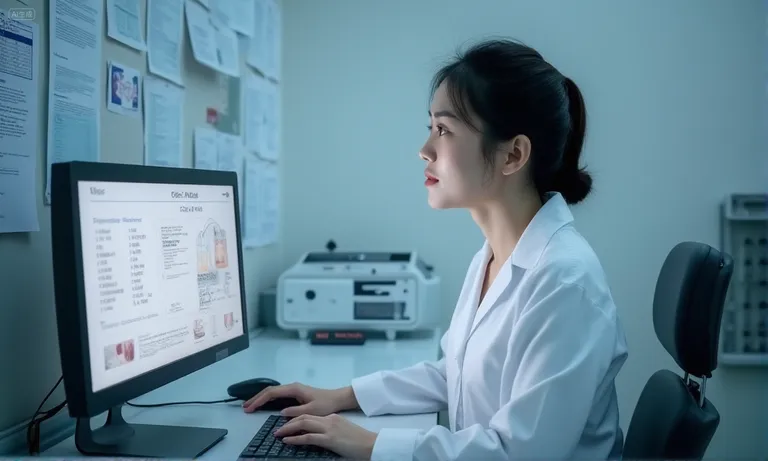
overseas-dental-lab-evaluation-factors
How to assess the lab’s experience with different types of implant cases
Experience is one of the strongest indicators of reliability. Labs that routinely handle full-arch restorations, angled screw channel cases, and multi-unit hybrids are more likely to deliver predictable results. Procurement teams should request case references and ask specifically about the number and frequency of complex cases handled. A lab that only works occasionally with these cases may not have the depth to manage variability.
Why technician certifications and client retention matter in evaluating a lab’s reliability
Certifications such as CDT or regional equivalents demonstrate that technicians meet professional training standards. However, certifications alone are not enough—client retention rates speak louder. A lab that retains the same clinics over many years signals consistency in both quality and communication. Reliable overseas labs are transparent about their team’s training and can provide evidence of long-standing client relationships.
- CDT or equivalent credentials: proof of standardized training.
- Retention rate: multi-year clients reflect stability.
- Continuous training: labs investing in updated CAD/CAM expertise stay competitive.
How to verify the lab’s reputation through reviews and testimonials
Reputation verification helps filter out unreliable suppliers. Public platforms, industry forums, and even distributor networks often provide testimonials. Procurement managers should look for patterns: consistent praise for accuracy, turnaround time, and communication reliability. A single positive review is anecdotal, but multiple independent sources signal credibility. For high-value cases, direct reference checks with existing clients are the most reliable approach.
Labs like Raytops Dental Lab often highlight client retention and transparent feedback loops as proof points when working with overseas buyers. This reassures procurement leaders that the partnership rests not just on price, but on proven trustworthiness.
Assessing the Expertise of an Overseas Lab in Complex Implant Cases
Evaluating expertise means looking beyond basic case handling to see how a lab manages advanced technical challenges. Overseas labs that can demonstrate proficiency with angled screw channels, custom abutments, and complex soft tissue considerations are better equipped for predictable outcomes. Technical depth, material approvals, and workflow integration together define whether a lab can reliably support demanding implant cases.
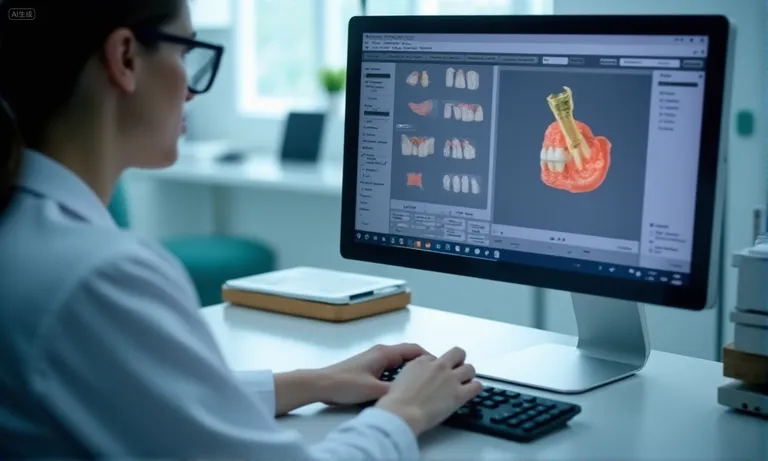
overseas-dental-lab-implant-expertise
How to evaluate the lab’s technical capabilities for handling angled screw channels and soft tissue management
Technical capabilities often determine whether complex restorations succeed or fail. For example, angled screw channels allow screw-retained restorations without compromising esthetics, but require advanced CAD/CAM precision. Soft tissue management adds another layer—labs must design emergence profiles that match biological contours. Procurement managers should ask labs to demonstrate past cases and show how they handle tolerance margins under these scenarios.
The importance of using ADA- and FDA-approved materials in complex implant cases
Material quality is not optional in implant work. ADA-recognized and FDA-approved materials ensure proven biocompatibility and clinical safety. Overseas labs that can provide documentation of their approved suppliers reduce risks of rejection or clinical complications.
- ADA-recognized alloys and ceramics: validated for strength and esthetics.
- FDA-approved titanium and zirconia: tested for long-term biocompatibility.
- Traceability records: documentation linking raw materials to final restorations.
How to confirm the lab’s proficiency in custom abutments and digital workflows
Custom abutments often define the precision of complex cases. Labs proficient in digital workflows can integrate abutment design seamlessly, avoiding manual errors. A stepwise validation helps confirm their capability:
- Request sample files of custom abutment designs produced in CAD.
- Verify whether they align with major implant systems (Straumann, Nobel, Dentsply).
- Confirm digital workflow integration (STL file acceptance, Exocad/3Shape compatibility).
- Review whether they provide documentation of abutment fit testing.
Overseas partners like Raytops Dental Lab often highlight their digital abutment workflows to demonstrate readiness for complex cases. For procurement managers, this translates into fewer remakes and greater confidence in scaling implant orders.
Certifications and Standards for Overseas Labs in Implant Work
Certifications provide assurance that an overseas dental lab operates with recognized quality controls and clinical safety standards. For complex implant cases, procurement managers should verify that the lab holds international certifications such as ISO 13485 and CDT, and that materials comply with FDA or CE requirements. These credentials reduce risk, safeguard patients, and confirm the lab’s capability to meet global expectations.
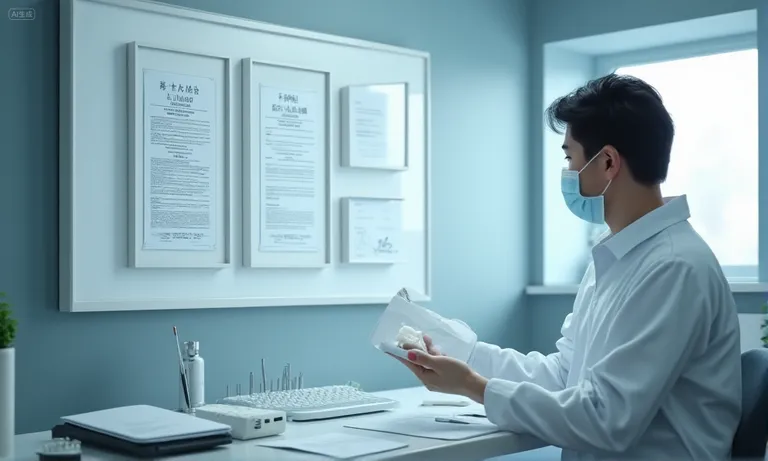
overseas-dental-lab-certifications-standards
Key certifications to look for when selecting an overseas lab for implant work
Certain certifications demonstrate that a lab operates under validated processes:
- ISO 13485: confirms adherence to medical device quality management systems.
- CDT (Certified Dental Technician): indicates technicians are professionally trained.
- FDA/CE compliance: validates materials meet international safety and regulatory standards.
- ISO 9001: quality management benchmark, though less specialized than ISO 13485.
How lab certifications impact patient safety and procedural success
Certifications are not just paperwork—they directly affect outcomes. For example, ISO 13485 ensures that every stage, from design to delivery, follows a documented process. This reduces the risk of uncontrolled variability. Similarly, FDA-approved titanium and zirconia guarantee biocompatibility, which minimizes clinical complications. Labs without such certifications may cut costs but expose clinics to hidden regulatory or patient safety risks.
Why ISO 13485 and CDT certifications are essential for quality assurance
These two certifications carry unique weight because they address both system-level and individual-level quality.
| Certification | Focus Area | Why It Matters for Implants |
|---|---|---|
| ISO 13485 | Lab-wide quality management system | Ensures consistent, documented QA |
| CDT | Technician-level certification | Confirms individual skills and training |
Together, they create a framework where both the lab and the technicians operate at international standards. Overseas labs like Raytops Dental Lab emphasize these certifications as part of their value to procurement managers, offering confidence that every implant case is backed by structured quality assurance.
Verifying the Track Record of Overseas Labs with Complex Implant Cases
A lab’s past performance is often the best predictor of future reliability. Procurement managers evaluating overseas dental labs should request verifiable case studies, analyze patient outcomes, and cross-check client feedback. Independent reviews and third-party records can further validate whether the lab has consistently delivered on complex implant restorations such as multi-unit bridges and full-arch cases.
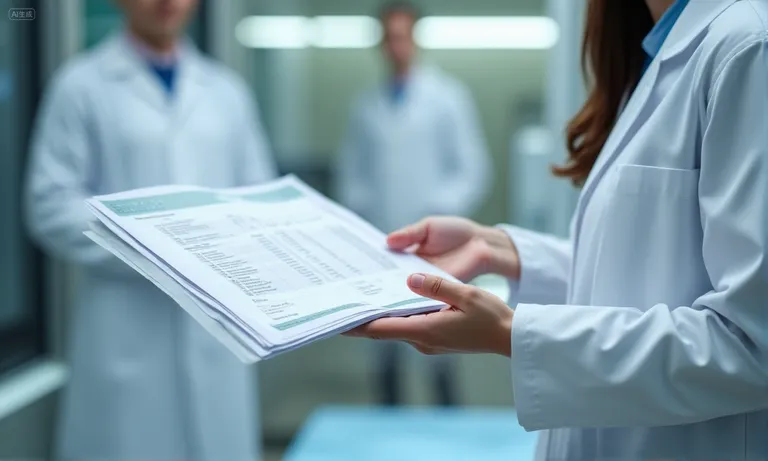
overseas-dental-lab-track-record-validation
How to check case studies and patient outcomes to assess lab expertise
Case studies provide tangible proof of a lab’s ability to handle complexity. For instance, documentation of a full-arch hybrid case should show both the design files and final prosthesis images. Outcomes such as fit precision, esthetic alignment, and durability over time demonstrate competence. A strong lab will be able to share anonymized before-and-after results, reinforcing confidence in its expertise.
Why customer feedback is essential for verifying the lab’s ability to handle complex cases
Client testimonials reveal the consistency of service over time. Procurement managers should look for:
- Retention rates: long-term clients often signal reliability.
- Specific feedback: comments mentioning implant precision or turnaround time are more credible than general praise.
- Cross-region references: reviews from clinics in multiple countries suggest the lab adapts well to different compliance environments.
How to validate lab results through independent third-party reviews and records
Third-party reviews add neutrality. Platforms like DentalTown or industry-specific publications often include practitioner feedback on lab performance. Additionally, independent audits or compliance records can confirm whether outcomes meet ISO or FDA standards. Overseas partners such as Raytops Dental Lab encourage buyers to cross-verify their track record with external references, providing an extra layer of trust.
Evaluating the Cost-Effectiveness of Overseas Dental Labs for Complex Implant Cases
Cost-effectiveness is not just about finding the lowest price—it is about balancing competitive pricing with predictable quality and long-term return on investment. For complex implant cases, procurement teams should verify transparent pricing structures, compare value propositions against domestic labs, and assess how outsourcing overseas can create measurable savings across multiple cases.

evaluating-cost-effectiveness-overseas-dental-labs
Why transparent pricing structures are critical when evaluating lab costs
Overseas labs that handle complex implant restorations should provide line-item clarity on unit costs, design fees, material surcharges, and shipping. Transparent pricing allows procurement teams to compare apples-to-apples across vendors. Without this, hidden charges such as rush fees or remake costs may erode the perceived advantage of outsourcing.
How to assess the lab’s value proposition relative to quality and pricing
Cost should always be weighed against reliability. A structured comparison highlights how different labs position themselves:
| Factor | Overseas Lab Example (Raytops) | Domestic Lab Example |
|---|---|---|
| Average turnaround | 7–10 business days | 3–5 business days |
| Unit cost (full-contour zirconia implant crown) | $80–100 | $200–300 |
| Remake rate | <3% | 2–4% |
| Support availability | Dedicated account manager | In-house support |
This table shows that while overseas labs often require slightly longer shipping times, they offset it with significantly lower unit costs and comparable remake rates.
The importance of understanding long-term cost savings and ROI from outsourcing implant work
True cost-effectiveness emerges when looking at multi-case procurement. For instance, reducing average unit cost by 50% across 100 implant crowns annually can save a clinic $10,000–15,000. More importantly, when an overseas lab maintains low remake rates and consistent quality, these savings are not offset by clinical delays or adjustments. Labs like Raytops Dental Lab support clinics by combining cost advantages with reliability, creating sustainable ROI in high-volume implant workflows.
Conclusion
Choosing the right overseas dental lab for complex implant cases requires more than comparing price tags. The most reliable partners combine technical expertise, certified processes, and transparent communication with cost advantages that improve long-term ROI. By verifying certifications, reviewing case histories, and cross-checking client feedback, procurement managers can reduce uncertainty and select labs that deliver consistent quality. As an overseas dental lab, Raytops supports clinics worldwide with predictable outcomes, low remake rates, and efficient collaboration. This balanced approach allows decision-makers to secure both economic value and clinical success in repeated implant workflows.
Selecting an overseas dental lab for complex implant cases requires balancing cost advantages with proven expertise and quality assurance. While international partners can deliver competitive pricing and advanced digital workflows, only a structured evaluation of their certifications, track record, and communication practices ensures predictable clinical outcomes.
- Experience & Expertise: Confirm the lab’s history with complex cases such as angled screw channels, full-arch restorations, and hybrid prostheses. Certifications and strong client retention indicate consistent reliability.
- Certifications & Quality: Verify ISO 13485 and FDA-compliant materials, along with robust QA systems that reduce remake rates and safeguard patient safety.
- Cost & Value: Look for transparent pricing and assess long-term ROI, ensuring that cost savings are not offset by delays or rework.
By applying these criteria, procurement teams can identify overseas labs that combine economic efficiency with high-quality results. With the right partner, practices can manage complex implant workflows more smoothly, scale capacity, and strengthen patient outcomes across repeated collaborations.
